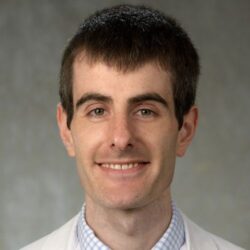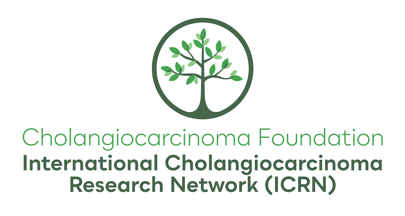| Name |
|
Thomas Karasic |
| Organization |
|
University of Pennsylvania |
| Can you tell us a bit about yourself? |
|
I am a medical oncologist at the University of Pennsylvania who specializes in the treatment of hepatobiliary and pancreatic cancers. |
| Can you share one or two of your specific research interests? |
|
My research is focused on clinical trials in immunotherapy in hepatocellular carcinoma and biliary tract cancers. I am also interested in expanding the role of liver transplant for patients with hepatobiliary cancers. |
| Why did you decide to specialize in hepatobiliary cancers? |
|
Treating hepatobiliary cancers is one of the ultimate team sports in oncology. I get to work with smart and dedicated colleagues in hepatology, surgical oncology, transplant surgery, diagnostic and interventional radiology, radiation oncology, and pathology on a daily basis. For patients who undergo liver transplantation, the team grows even bigger. It is incredibly rewarding to work within such a team to help patients who are often incredibly sick and need all hands on deck. |
| Can you describe one of the unforgettable moments in your patients care or research that has impacted your career? |
|
One of the first patients I treated with immunotherapy for hepatocellular carcinoma was a woman who developed ascites due to a large new liver tumor. She was unable to get embolization safely and did not tolerate sorafenib and so she gave away all of her Earthly possessions and moved to Philadelphia to live with her son. After a single dose of nivolumab, her ascites and liver function began to improve, and she ended up having a complete response to therapy. She has been able to remain in remission off of treatment and see the birth of her grandson. These success stories with immunotherapy in hepatobiliary cancers are what drive me to continue clinical research to expand the reach of these treatments to more patients. |
| Can you tell us one thing collaboration with colleagues could accomplish that you could not accomplish on your own? |
|
I enjoy working with my immunology colleagues to learn lessons about novel immune treatments in other cancers and find ways to apply those treatments to hepatobiliary cancers. I also hope that one day this collaboration will help determine upfront which patients with liver cancers are likely to respond to immunotherapy and which need a different approach. |
| If you had access to one resource that would move your research forward, what would that resource be? |
|
Many patients with cholangiocarcinoma miss out on clinical trials or curative procedures such as liver transplant because their doctors are not aware of the options. I believe that all patients with cholangiocarcinoma should receive an opinion at a major center specializing in treatment, and better patient and physician education as well as philanthropic support to overcome social barriers is critical to improving patient enrollment in cholangiocarcinoma clinical trials. |
| How did you learn about the Cholangiocarcinoma Foundation? |
|
I first heard of the Cholangiocarcinoma Foundation when I was a fellow attending GI ASCO and by chance sat at a table with Katie Kelley at a mentoring event. |
| Can you tell us why you became a member of the ICRN? |
|
Being a member of the ICRN helps connect me with colleagues across the world who are also dedicated to treating cholangiocarcinoma and helps keep me connected with the latest research |
| If you are one of our Cholangiocarcinoma Foundation Fellowship awardees, how has this Fellowship impacted your career? |
|
N/A |

